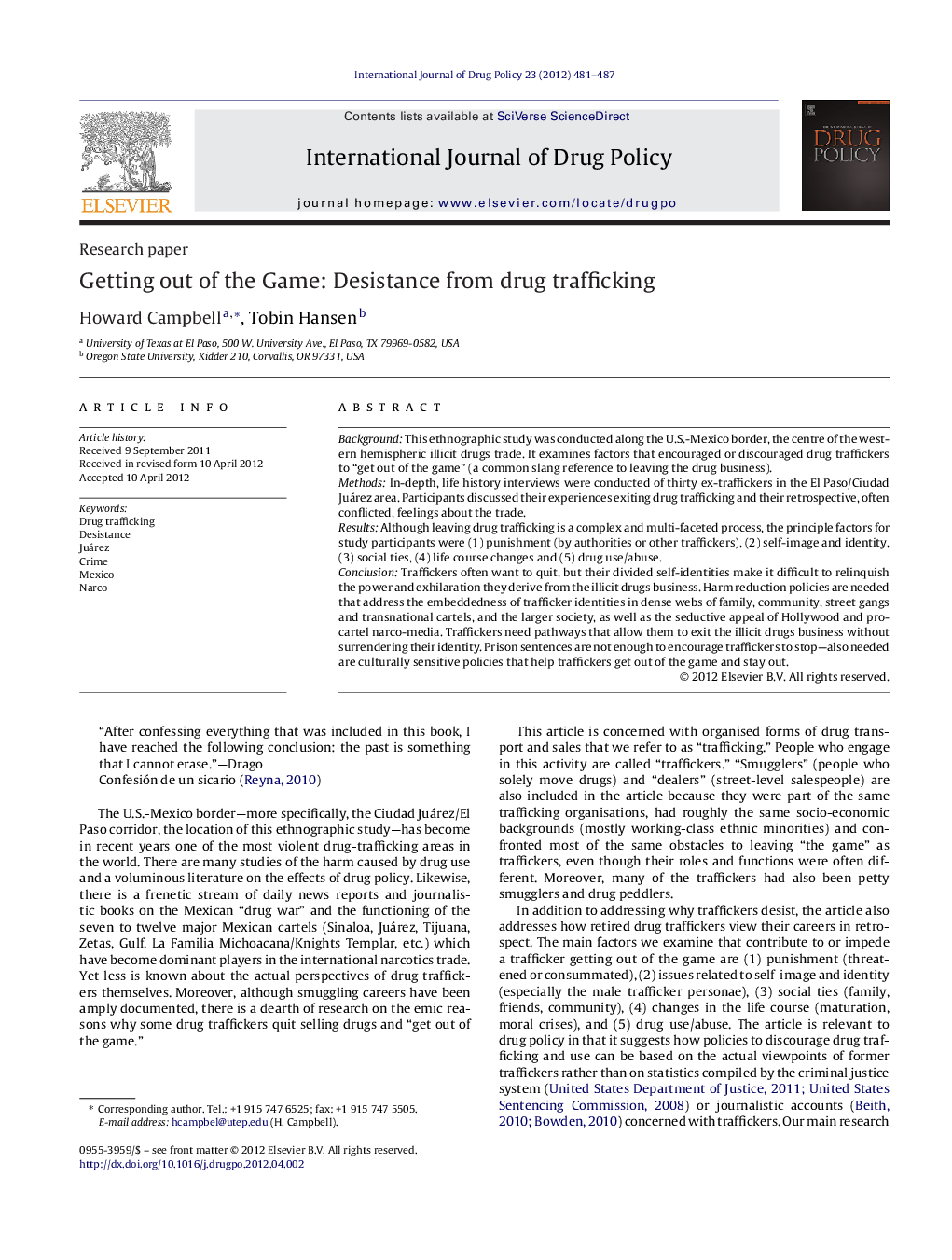| Article ID | Journal | Published Year | Pages | File Type |
|---|---|---|---|---|
| 1075170 | International Journal of Drug Policy | 2012 | 7 Pages |
BackgroundThis ethnographic study was conducted along the U.S.-Mexico border, the centre of the western hemispheric illicit drugs trade. It examines factors that encouraged or discouraged drug traffickers to “get out of the game” (a common slang reference to leaving the drug business).MethodsIn-depth, life history interviews were conducted of thirty ex-traffickers in the El Paso/Ciudad Juárez area. Participants discussed their experiences exiting drug trafficking and their retrospective, often conflicted, feelings about the trade.ResultsAlthough leaving drug trafficking is a complex and multi-faceted process, the principle factors for study participants were (1) punishment (by authorities or other traffickers), (2) self-image and identity, (3) social ties, (4) life course changes and (5) drug use/abuse.ConclusionTraffickers often want to quit, but their divided self-identities make it difficult to relinquish the power and exhilaration they derive from the illicit drugs business. Harm reduction policies are needed that address the embeddedness of trafficker identities in dense webs of family, community, street gangs and transnational cartels, and the larger society, as well as the seductive appeal of Hollywood and pro-cartel narco-media. Traffickers need pathways that allow them to exit the illicit drugs business without surrendering their identity. Prison sentences are not enough to encourage traffickers to stop—also needed are culturally sensitive policies that help traffickers get out of the game and stay out.
